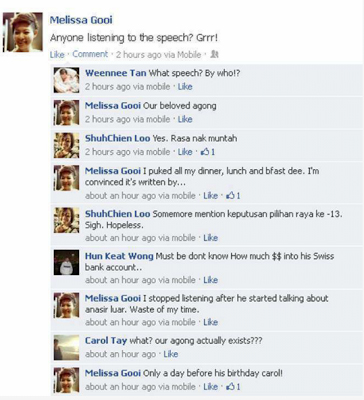
(Pic by Integricity Visuals)
WHEN Melissa Gooi posted a comment on her Facebook page about the Agong’s birthday speech in early June, she was hauled up and investigated for allegedly “insulting the King”. The infamous Alvin Tan and Vivian Lee’s bah kut teh posting during Ramadan also led to the couple, known by the moniker Alvivi, being arrested, detained and charged under three different laws for allegedly “insulting Islam”. Additionally, a Hari Raya video that Maznah Mohd Yusof made, featuring her three dogs, led to the Muslim dog trainer being arrested and remanded, and harassed by the religious authorities.
Imagine if Gooi’s response to the Agong’s speech and the subsequent conversation around it had taken place in a coffee shop, or in the privacy of her home, or in a three-way teleconference. Would Gooi and her friends have been investigated and prosecuted for saying the same words? What if Alvivi had made the same Ramadan greeting and printed it out and distributed it among her friends instead? And what if someone had walked past Maznah’s house and saw her bathing her dogs – would she have still been charged with causing religious disharmony?
Viral power
This rash of cases suggests that the arm of the law has a greater reach online than offline. The same activities, conducted in the real world, may not attract much attention or any legal implications. It would seem that as far as the authorities are concerned, it’s more likely criminal and more easily actionable if it’s viral.
What has given rise to this situation?
Social media has led to a decline in digital anonymity. It encourages users to not just make known their identity but to broadcast it to the whole world. For some people, social media is how they define who they are. This has simply made it easier for the authorities to zero in on content regarded as seditious. Police officers can’t be in every coffee shop in town to catch people making seditious remarks, but in one hour, they could visit a lot of Facebook pages.
Contributing to this has been a false perception of privacy on social media. Many people don’t realise there is no way to completely control the sharing of your pictures, even if you choose a vigorous privacy setting.
And in the age of mobile phones, a tightly locked-up, uber-private Facebook profile is no protection against a busybody who snaps a shot of your comments from someone else’s computer. Gooi’s comments stream was captured by someone who simply took a screenshot of her Facebook page. That screenshot was then circulated as a file labelled “Kutuk Agong”.

The screenshot that was distributed
under the file name ‘Kutuk Agong’
under the file name ‘Kutuk Agong’
The age of social media, by its very nature, is defined by the sharing of content. And it’s a fallacy to think that sharing is only restricted to feel-good mantras or funny cat pictures. The reality is that most of us, at one time or another, have shared something on Facebook that has grievously outraged others or offended their sensibilities or values. That is precisely what happened in Maznah’s case. Her three-year-old video was reposted by someone else with an inflammatory “insulting Islam” tag added to it.
Don’t look
The government seems to think that citizens should, therefore, police themselves and take full responsibility for the content on their social media sites. Yet how is this fair when social media users sometimes do not have the tools to restrict the sharing of their Facebook content? Why should someone be held responsible for a third party who renders the inoffensive offensive by adding inflammatory commentary?
Additionally, why should the author of a posting or video be responsible for another person’s sensitivities, for so long as the posting isn’t a call to or threat of violence?
Our sensitivities belong to us, nobody else. As adults, we, not anybody else, should be responsible for them.
In an age in which Salman Rushdie describes the “culture of offendedness” as being the norm, perhaps the government should advocate a simpler solution. Tell people who are easily excitable and offended not to look.

(Wiki commons)
After all, content on the internet has to be deliberately or consciously accessed. No one is forced to get a Twitter or Facebook account or even to read Twitter or Facebook. No one has to read websites they don’t like, or watch YouTube videos that offend them, or read Facebook status updates that are vacuous and annoying.
And if you can’t help yourself but look, then take responsibility for choosing to be offended. As William Saletan, in discussing the controversial film The Innocence of Muslims, points out in Slate: “You’re living in the age of the Internet. Your religion will be mocked, and the mockery will find its way to you. Get over it.”
Bernice Low used to blog for CNET Asia. When not skewering someone in her blog, she’s busy dreaming up of Hollywood blockbuster movies in her other life as a screenwriter. NutGraph



No comments:
Post a Comment
Note: Only a member of this blog may post a comment.